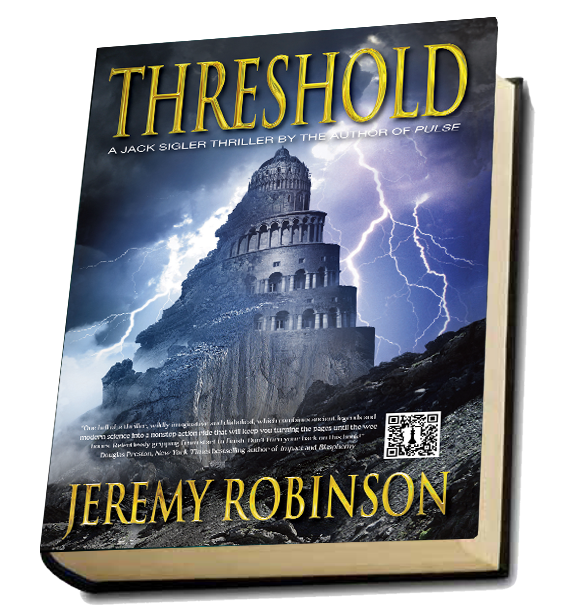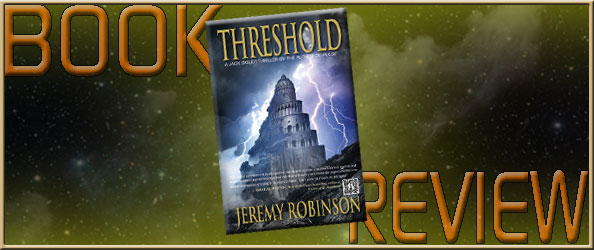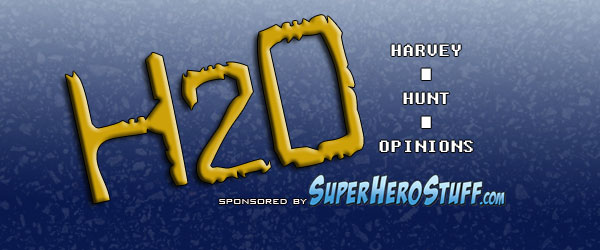Jeremy Robinson Redeems Himself with THRESHOLD
THRESHOLD
By Jeremy Robinson
(Thomas Dunne Books, 2011)
 This is the third in the “Chess Team” series featuring an elite military unit led by Jack Sigler. And this one is much better than the last one (Instinct). And if you’re wondering what it’s doing here, you haven’t read them. The Chess Team books feel like National Treasure if Nic Cage and Justin Bartha had been replaced by Chuck Norris and Carl Weathers.
This is the third in the “Chess Team” series featuring an elite military unit led by Jack Sigler. And this one is much better than the last one (Instinct). And if you’re wondering what it’s doing here, you haven’t read them. The Chess Team books feel like National Treasure if Nic Cage and Justin Bartha had been replaced by Chuck Norris and Carl Weathers.
Reviewing for those who haven’t read the others: the Chess Team is a squad of Delta, elite soldiers – code named King, Queen, Bishop, Knight, and Rook – coordinated by an anonymous figure named “Deep Blue”, who sends them from Fort Bragg on their covert missions very much like a modern-day Charlie. In the first book, Pulse, the team went head-to-head with the legendary Hydra. And faced Richard Ridley, a demented wealthy socialite with a multi-billion dollar genetics company researching the secret of immortality. Along the way, they met the man who became known as Hercules, and crossed paths with the Herculean Society, charged with keeping all of this Hydra business secret.
In the second book, Instinct, the team faces a deadly virus and has to take Dr. Sarah Fogg of the CDC into Viet Nam, where the source of the disease rests with ancient Neanderthals. I’m going to say, I wasn’t impressed with this one. It went in circles and circles and circles, and only served to reveal that Deep Blue is actually the President of the United States, a bit that I saw coming from a mile away and still have a hard time swallowing. There was a bit of a budding romance between Sigler and Fogg, but it went nowhere. Queen was tortured and has a big brand on her forehead now. And at the end of the book, a small town is attacked and destroyed, the only survivor being a little girl named Fiona. And the coda at the end gave us a hint that the Herculean Society was still active in the background of events.
So, that’s where we pick up in Threshold, with Sigler (call sign King) in the process of getting guardian status so he and the other soldiers at Fort Bragg can watch over the girl, who happens to be the only surviving member of a group of people who speak a certain dead language. And speaking of dead, Sigler’s mother dies, but not really, giving him an opportunity to find out that his parents are not all he thought they were.
Language is the key to this mystery/thriller, as the Chess Team has to square off against golems controlled by Ridley, who has figured out that if he combines enough dead languages and finds their common elements, he can unlock the secret to creation. As in the language everyone spoke before God threw everyone into confusion at the Tower of Babel.
Yes. That Tower of Babel. It’s interesting to see the progression of supernatural and legendary elements that have cropped up in Robinson’s book. First the Hydra, then the Neanderthals, and now golems and creation itself. The use of Stonehenge as a nexus point for the climax between the Chess Team and Ridley is an inspired choice, given that there’s all sorts of speculation about its true purpose. But to tie it in with Merlin and the Tower of Babel is a fun leap. Almost like “Stargate SG-1” in its combination of legends.
The theme of family runs all through Threshold, and it serves to bind the various story threads together in a consistent fashion without being cloying. King has to deal with his ambivalence about being Fiona’s new family, at the same time dealing with revelations about his parents. Queen has to deal with her feelings for Rook after the team is separated and it appears he’s been captured or killed. President Duncan has to deal with the stress of politics getting in the way of his job as Deep Blue, which puts his military “family” – the Chess Team – at risk. And Ridley even has family issues, as his circumstances give rise to the question of immortality and what it is to be human.
Frankly, the whole plot device of the President of the United States being a covert coordinator for an elite military unit is ludicrous. The amount of secrecy involved in something like that, not to mention the time it would take away from the job of leading the country, makes it highly implausible at best. In Instinct, it struck me as a plot gimmick, very predictable and unsatisfying. Here, it’s again a gimmick, but Robinson makes it work by showing how the jobs finally collide, as they undoubtedly would in real life.
President Duncan does, however, get some good scenes. And his emotions following the golem attack on Fort Bragg are well-written, well in line with an ex-military politico would be feeling under the circumstances. I can almost imagine Robinson researching the political and military reactions after the 9-11 attacks for reference.
The search for speakers of dead languages is a good device to split up the team, making them more vulnerable to attack and defeat. This raises the stakes in a way that heightens the sense that everything hinges on their success around the world, and when that gets complicated, the danger to the planet goes up a notch or two.
I have to say, after the mess of Instinct, I wasn’t sure what to expect from Threshold. I’m glad it held together. Several threads from Pulse are nicely wrapped up, leaving room for new threads to take us forward into the next set of stories. I’m especially pleased to see an portrayal of a Higher Power that doesn’t involve lunatics, ridicule, or parody.
But where do you go from here? Hercules, the Hydra, and now dabbling in Creation science?
Maybe they’ll find Chuck Norris arm wrestling Hercules in the Library of Alexandria…





